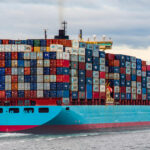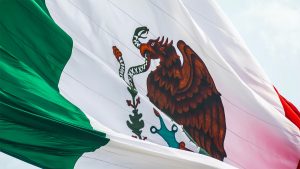US efforts against fentanyl have been ramping up. Specifically, the Trump administration has turned its focus to one specific Mexican cartel – La Familia Michoacana.
The US has increased financial sanctions on the fentanyl trade, specifically targeting the cartel’s foothold in Lázaro Cárdenas – Mexico’s largest Pacific port. This position allows La Familia Michoacan to import the precursor materials direct from China and India. In case that wasn’t enough, a bounty has been placed on the cartel’s leaders, the Olascoaga brothers.
Fentanyl will remain a problem for the US, but at least there won’t be any in your easter eggs this year…hopefully.
Here at Zeihan on Geopolitics, our chosen charity partner is MedShare. They provide emergency medical services to communities in need, with a very heavy emphasis on locations facing acute crises. Medshare operates right in the thick of it, so we can be sure that every cent of our donation is not simply going directly to where help is needed most, but our donations serve as a force multiplier for a system already in existence.
For those who would like to donate directly to MedShare or to learn more about their efforts, you can click this link.
Transcript
Hello, Peter Zeihan here. Coming to you from Colorado. Happy Easter. Let’s talk about drugs. Specifically fentanyl. Last week, the Trump administration. These are courtesy of my niece, by the way, and my sister. And they have no taste. Anyway, last week, the Trump administration upped enforcement of, basically financial sanctions against folks involved with the drug trade in Mexico, specifically a group by the name of La Familia Michoacan, which is a cartel in the southern part of the country.
Music. Milliken state. Why does this matter? Well, Sentinel is a really difficult drug to move against because it’s a synthetic. It only takes a few seconds per dose to produce, basically do 100,000 doses in a garage and in the course of a week, as opposed to cocaine, which has a long agricultural supply chain stretching it back to South America.
And so most of the things that the United States has done, before and during this current Trump administration has almost been pointless, because if you’re dealing with dozens, hundreds, thousands of mom and pop operators that are building this stuff, a traditional military or law enforcement approach just doesn’t work. The volumes are too small or too easy to smuggle.
And since it’s synthetic, you basically can put it anywhere. So even if Mexico, working with the United States or on its own, was able to get rid of fentanyl production, it would just move to Oklahoma or Nevada or somewhere else. There has been a recent breakthrough with the de minimis shipping exception being closed, and that will greatly reduce the volumes of the precursor materials that make it in from India and China.
And that will complicate the drug production, but it doesn’t solve the problem. Ultimately, it’s small scale and it’s hard to fight, of course, within every general trend there is an exception and la familia Michoacan is the exception. They are a cartel that instead of built around the smuggling of cocaine, is built a blurring the mass production of fentanyl. They are the only one of the major, narcotics trafficking groups in Mexico that has followed that business model.
And because they control the part of Lazaro Cardenas, which is the largest Pacific port in Mexico, they have easy access to the raw materials that they need to basically produce fentanyl at an industrial pace. And they are largely immune to anything that happens with the de minimis exception or law enforcement in the United States. In many ways, they’re powerful enough to be a state within a state, and they control all of the corruption that goes along in the port as well.
So rooting them out is going to be very, very difficult. In addition, some of the military options that the Trump administration really are inappropriate for this, not just because this is a major commercial port that would have a lot of complications and problems, but it’s on the wrong side of the country. It is on the southern coast of Mexico.
It is nowhere near the U.S. border, so it’s just not in the sort of place that, the Trump administration or the United States in general can act. That said, the Trump administration has definitely named and shamed the brothers. Alaska Bagwell, who are in charge of the cartel, are now bumped up on the most wanted list. And I believe the new bounty is $8 million, in addition to a whole series of financial sanctions and indictments from US federal prosecutors. There is no good solution here. If there was, fentanyl wouldn’t be a problem.
But because there’s an industrial scale production in this part of Mexico, U.S. authorities working in league with the Mexican government might actually be able to do something. It’s one thing to go door to door through every Mexican and American city looking for a drug lab. It’s quite another when, you know, the largest fentanyl labs in the world are in one specific city.
That happens to be a port doesn’t make it easy, but it does mean that the sharp end of American power is a little bit more appropriate for this specific fight than for the rest of the drug war.








